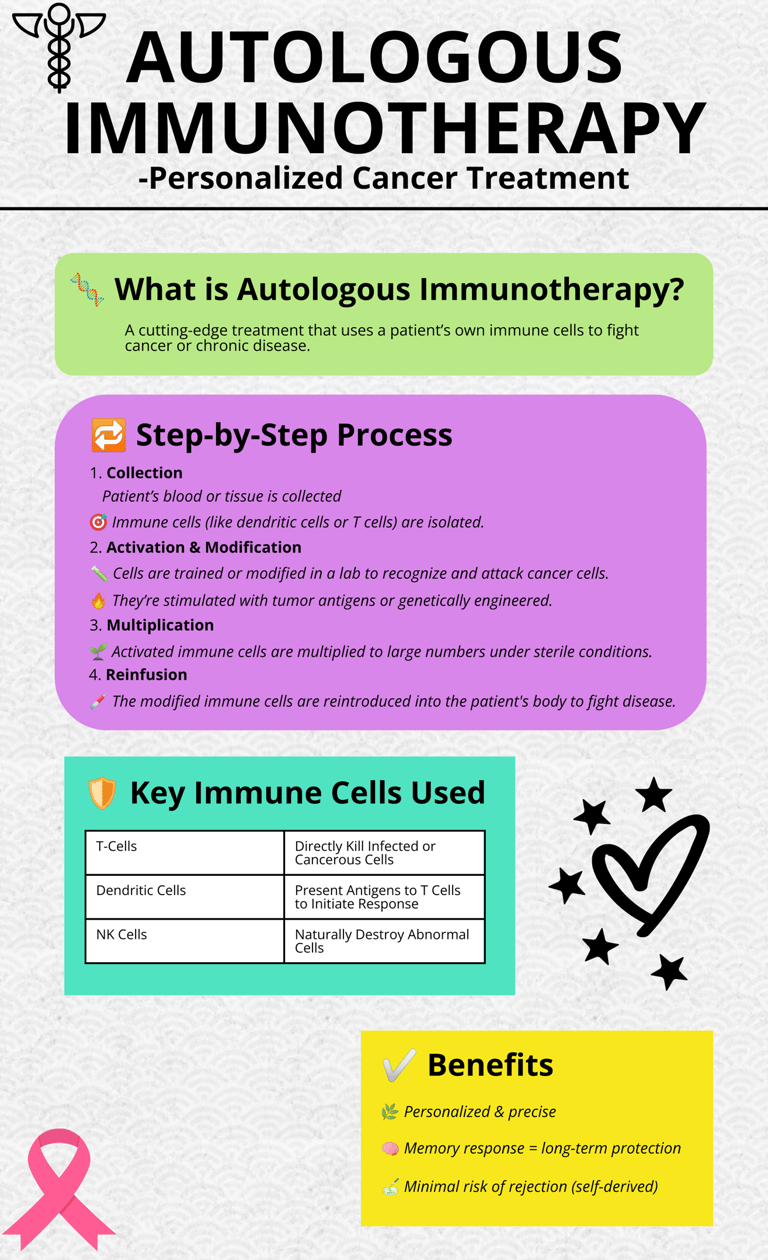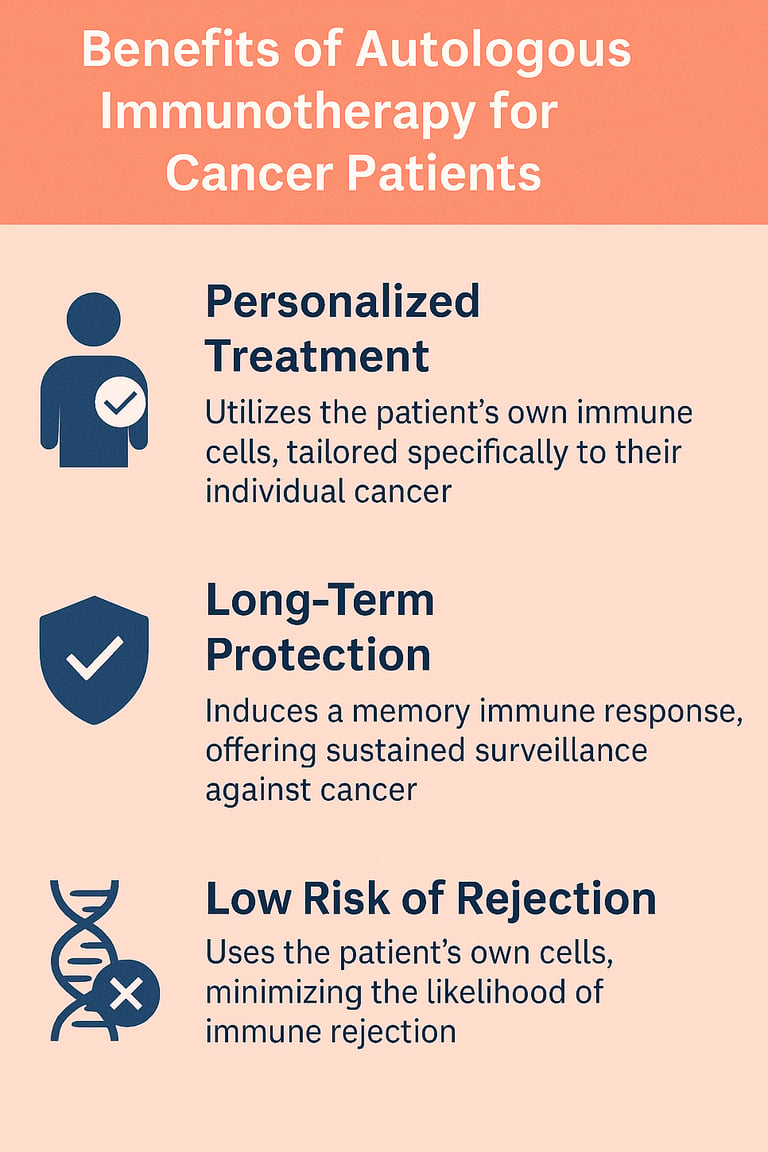
Autologous Immunotherapy

Using the body's own immune cells to combat cancer is a novel approach to cancer treatment known as autologous immunotherapy. In contrast to conventional therapies that use outside substances like radiation or chemotherapy, autologous immunotherapy uses the patient's immune system to specifically target and destroy cancer cells. This type of treatment offers patients whose cancers have not responded to traditional treatments new hope and marks a major advancement in personalized medicine.
In autologous immunotherapy, immune cells—such as T cells, dendritic cells, or Natural Killer (NK) cells—are taken from the patient's body, altered or improved in a lab, and then reinfused into the patient. These immune cells have been modified to more effectively identify and combat cancerous cells. The risk of rejection or unfavorable immune responses is greatly decreased because the therapy makes use of the patient's own cells.
Gamma delta (γδ) T cell therapy is a cutting-edge cancer treatment that uses a unique type of immune cell capable of targeting tumors without needing MHC recognition. These cells combine rapid innate responses with targeted adaptive functions, making them effective across many cancer types. Easily expanded and safe for both personalized and donor-based use, γδ T cells naturally home to tumors and kill abnormal cells. Their versatility is fueling new treatments in oncology, with even greater potential ahead through enhancements like CAR-γδ T cells.
Another essential element of autologous immunotherapy is natural killer (NK) cells. As innate immune system components, NK cells have the innate ability to identify and eliminate cancer cells without any prior sensitization. To more effectively target and eradicate cancer cells, autologous NK cell therapy involves reintroducing NK cells that have been isolated, grown, or improved in the laboratory.
Dendritic cell therapy is also a key aspect of autologous immunotherapy. Dendritic cells are responsible for presenting cancer antigens to T cells, triggering a more potent immune response against the tumor. This combination of immune cell types—T cells, NK cells, and dendritic cells—ensures a comprehensive and multi-pronged attack on cancer, making autologous immunotherapy highly effective.
What is Autologous Immunotherapy
Benefits for Cancer Patients
Autologous immunotherapy has a number of benefits over traditional cancer treatments for patients. Conventional treatments like radiation and chemotherapy can be extremely harmful, harming both healthy and cancerous cells. Serious adverse effects like exhaustion, nausea, hair loss, and immune suppression are frequently the result of this. Autologous immunotherapy, on the other hand, targets cancer cells precisely while preserving healthy tissues. Patients have a higher quality of life and experience fewer side effects as a result.
Additionally, autologous immunotherapy offers sustained defense. The altered immune cells can provide ongoing protection against cancer recurrence for years after being reintroduced into the body. This long-term impact is especially crucial for cancers with a high chance of recurrence.
Why is Autologous Immunotherapy Better Than Conventional Treatments
The one-size-fits-all strategy of traditional cancer treatments is being replaced by autologous immunotherapy, which offers a more individualized approach to cancer care. Conventional therapies, like radiation and chemotherapy, are frequently constrained by their general and non-specific effects, which can cause resistance in some cancer types. In contrast, autologous immunotherapy targets cancer cells that may have become resistant to other treatments by customizing treatment to the patient's immune system and cancer profile.
The Future of Autologous Immunotherapy
Because autologous immunotherapy has the potential to completely change how we treat cancer, it is frequently seen as the treatment of the future. Autologous immunotherapy is anticipated to become a common treatment option for a greater range of cancers as a result of continued research and clinical developments. This therapy has the potential to give cancer patients more individualized, efficient, and non-toxic treatment options as it develops further, which would ultimately improve outcomes and survival rates.
To sum up, autologous immunotherapy presents a revolutionary method of treating cancer by giving patients more effective, long-lasting, and less dangerous substitutes for traditional treatments. Its increasing popularity positions it as the cancer treatment of the future, opening the door to more individualized and efficient therapies.




Suite 2-3, Wisma Life Care, 5, Jalan Kerinchi, Kuala Lumpur, Malaysia, 59200
+ (60)163225035 (WhatsApp)
+ (60)122963089 (WhatsApp)


